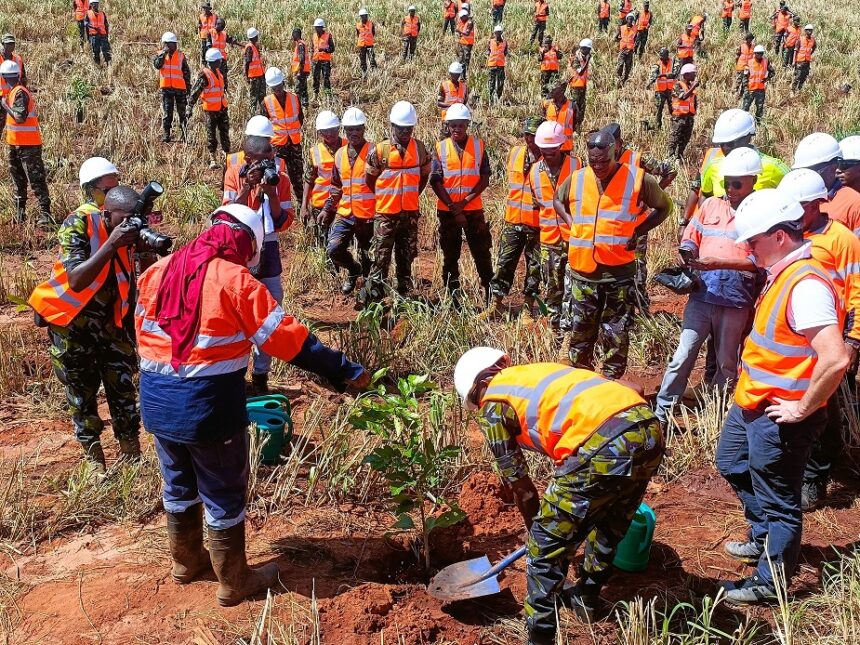Base Titanium, an Australian mining company operating in Kwale, Kenya, has intensified its environmental management practices to reduce mining’s ecological impact and promote biodiversity.
Commitment to Rehabilitation
The company’s restoration efforts center on reforestation, biodiversity enhancement, and creating agricultural opportunities for local communities. With mineral reserves nearing depletion, Base Titanium plans to cease operations by December 2024 and is expediting the rehabilitation of mined-out areas.
Since 2013, the firm has mined rutile, ilmenite, and zircon, accounting for about 65% of Kenya’s mineral output by value. The project is also recognized as a key initiative under the Vision 2030 national development blueprint.
Land Restoration Process
Rehabilitation begins with reshaping mined areas into dunes resembling their original topography to ensure proper drainage. This is followed by spreading topsoil, manuring, and mulching to enhance soil health and prepare for vegetation growth.
Simon Wall, Base Titanium’s General Manager for External Affairs, emphasized that land restoration is integral to the mining lifecycle, enabling safe and productive land use post-mining. “Our efforts aim to restore mined-out areas to sustainable ecological, economic, and social conditions,” said Wall.
Ecological and Community Benefits
The company has already rehabilitated over 500 hectares of land in the South and Central Dunes. Wall highlighted the importance of preserving forests and biodiversity, noting that these efforts contribute to long-term ecological balance.
Base Titanium operates an indigenous tree nursery with over 280 species, which are pivotal to reforestation initiatives. Over 800 trees from the nursery have been planted in the rehabilitated areas, improving biodiversity and returning the land to its pre-mining state—or better.
Collaboration with Kenya Navy
During a recent tree-planting exercise at the South Dune site, led by Kenya Navy soldiers, Wall acknowledged the Navy’s role as a vital partner in environmental conservation. This collaboration is part of broader preparations for post-mining land use and the Kenya Navy’s 60th-anniversary celebrations in December 2024.
Colonel Benson Karuimbo, Commandant of the Kenya Naval Training College, said the initiative aligns with the Kenya Defense Forces’ Environmental Soldier Programme, aimed at combating climate change and increasing tree cover to 30%.
“This collective effort underscores the importance of addressing environmental issues associated with mining,” said Col. Karuimbo.
Sustainable Mining Legacy
Base Titanium’s focus on site closure planning, which began before mining operations commenced, underscores its dedication to responsible environmental stewardship. Wall reiterated the firm’s commitment to leaving a positive legacy by restoring mined-out sites for biodiversity and sustainable future use.



